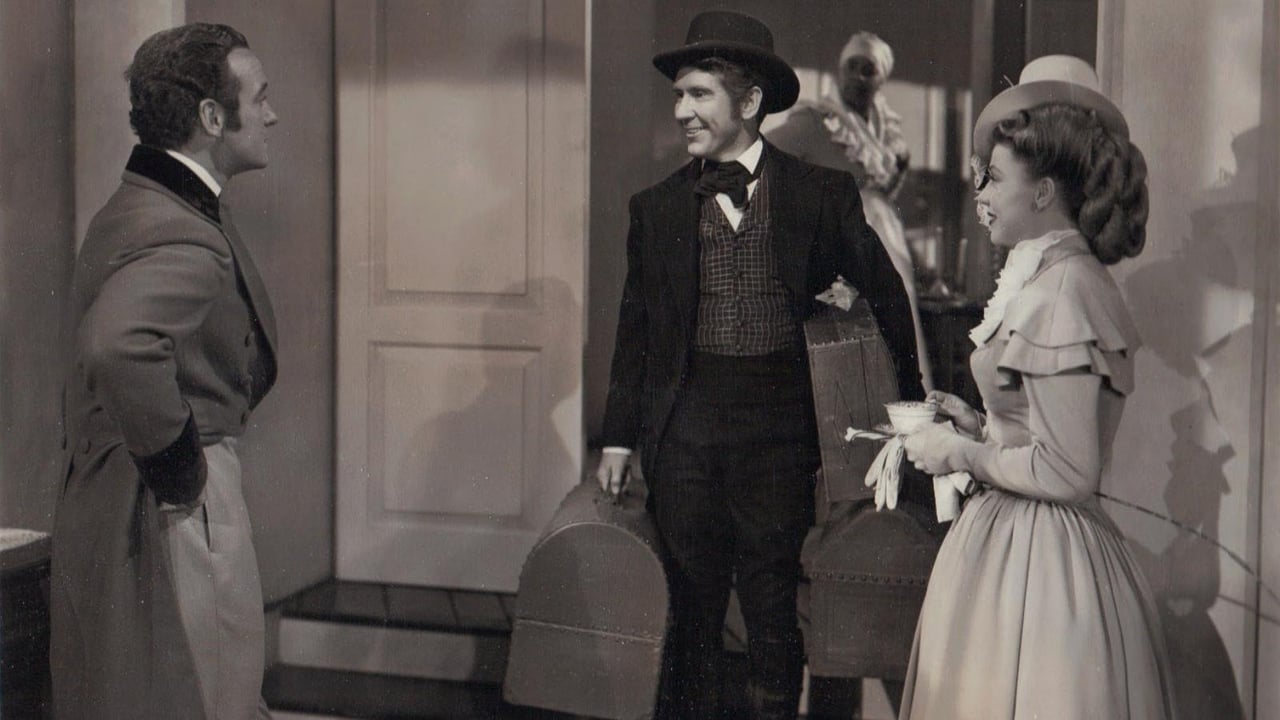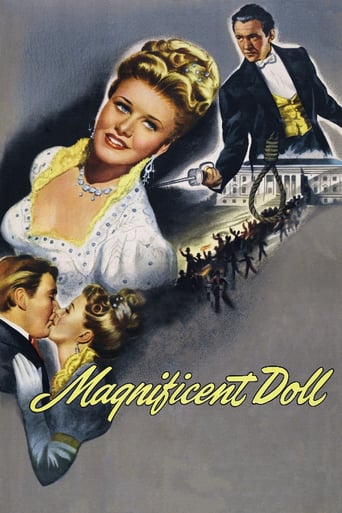

Dolly Madison is a truly fascinating character from American history. Unfortunately, while "Magnificent Doll" does center on her life, it also is filled with historical inaccuracies...enough so that it's not a particularly good history or civics lesson. The biggest problem is that romance between Madison (Ginger Rogers) and Aaron Burr (David Niven) as I could find no indication that they ever dated or had any sort of relationship apart from taking a room at her mother's rooming house. There also is no mention of a child from her first marriage...one that did NOT die from Yellow Fever. And, sadly, what we know Dolly DID do was generally omitted or given only brief mention. Apart from the inaccuracies, the film is a mildly entertaining but occasionally stuffy film. In particular, the latter portion of the movie seems to go off the rails...and boredom set in as I watched. Not terrible...but Dolly sure deserves better than this tepid plot.
... View MorePlot spoilers—Dolly's father forces her into an arranged marriage, and, as a result, she willfully hates her husband. After the death of her husband and child, she becomes the toast of Washington and the object of the most powerful politicians. She vows to truly love the next man she marries. This film is a political romance with Dolly looking for love and fulfillment among Washington's most powerful men. She proves to be their equal intellectually and politically. I've seen many Ginger Rogers films, and I've enjoyed them all. Some are frivolous and entertaining, some are musical and entertaining, and some are dramatic and entertaining. This movie is powerful and provides historical background to an intense drama. Just as Dolly's intellect and influence equaled the politicians of her time, Rogers' performance equals the skill of the other stellar actors in the cast. Some movies I can't wait to end, but with Magnificent Doll, I wanted it to continue beyond "The End." Captivating, entertaining, and a Rogers hit. Must see viewing.
... View MoreRecently I moved and as I was doing so, I threw some films into a few boxes I wanted to watch but never got around to watching for one reason or another. A few days ago, while unpacking some items, I found one of the boxes-- a treasure trove is more accurate-- and inside was a copy of MAGNIFICENT DOLL.I have had a copy of this film for several years and I was saving it-- who knows why. And what a treat to save. I love this film and only wish I had seen it ages ago. Just look at the cast of this historical drama.David Niven and Ginger Rogers are top-billed. And altogether, they appeared in three films-- MAGNIFICENT DOLL was the second pairing for them. Their other efforts were BACHELOR MOTHER (for RKO) and OH MEN! OH WOMEN! (for Fox). One of the things I love about this film is that it's the second time Burgess Meredith gets the girl in a Ginger Rogers movie. Previously, he was the lucky guy in TOM, DICK AND HARRY. So though Niven is higher billed, he is essentially playing a supporting role, because Meredith is the one holding Rogers in his arms as the final fade-out occurs. MAGNIFICENT DOLL was a flop, probably because Universal didn't know how to market it and audiences were not ready to see Ginger do anything but musical comedy or tearjerkers. But watching this film convinces me that she was at her best when she was working in other genres, pushing herself as an actress. The set decoration is top-notch in this film; and Ginger gets to wear gowns by Vera West and hats by Lilly Dache.The always exceptional Frank Borzage is the director and rabbi turned Hollywood executive Jack Skirball is the producer.
... View MoreI saw this movie 45 years ago on the "Fabulous 52", a late night show dedicated to old movies. I was a teenager at the time and would stay up very late while babysitting. It made a big impression on me and I never forgot it. I especially enjoyed the story line of her first marriage although, I later found out it was not accurate. I searched in recent years to find it on DVD to no avail. To my delight, I recently was able to watch the entire movie on the Internet, 45 years later! What a treat! I remembered a lot of it. I would love to have a copy of it. Although the story line is not quite accurate, the movie got me interested in Dolley Madison and her life. I thought it was very well done for a movie of its time. I would recommend it to old movie buffs.
... View More